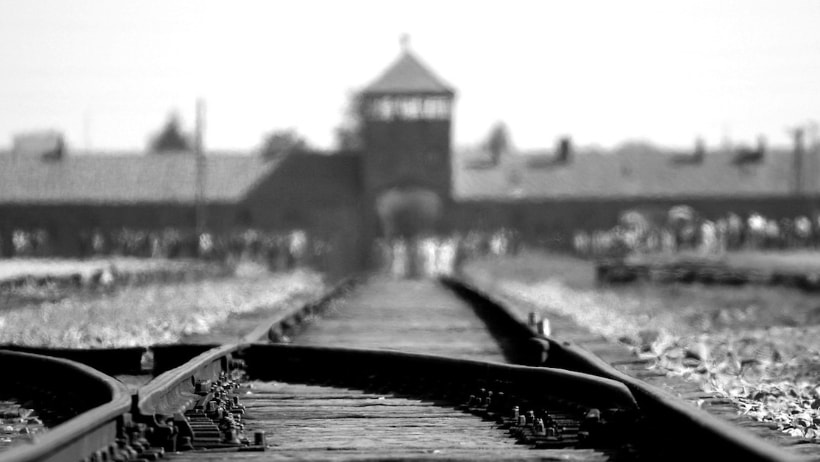D’var Torah for Congregation Neveh Shalom – April 14, 2018
Just this week we observed Yom HaShoah, the day of remembrance of those who perished at the hands of the Nazis. Some news outlets mentioned the results of a recent survey conducted about the Holocaust. You may have seen it referenced online. This survey was commissioned by the Conference on Jewish Material Claims Against Germany, and it looked at the awareness of the Holocaust in the United States.

I will say as a caveat, they only interviewed 1,350 adults. It’s helpful to keep in mind this is less than one thousandth of a percent of the population. But on the other hand, it’s the job of surveys to extrapolate and make assumptions based on the data, and this data is staggering. It points to a downward trend in the awareness of basic Holocaust knowledge, or what we think of as basic, including the fact that 45% of the adults surveyed could not name a concentration camp. If we assume this survey represents a balanced sampling of people, almost half of American adults did not have the name Auschwitz somewhere in their accessible memory. They couldn’t say Dachau. They couldn’t come up with Warsaw or Treblinka.
We condemn the silence of 80 years ago by saying “Never again.” So, what about the silence now? What are doing to condemn this silence and make sure when people say, “Never again,” they actually know what it is they don’t want to ever happen again?
Maybe this week’s silence in the Torah offers some advice. This week we read Parshat Shemini, which details priestly instructions, including the prohibition from drinking while on the job and the designations for various animals to be considered pure and impure. But somewhat hidden near the beginning is Aaron’s curious reaction to the deaths of his two eldest sons, Nadav and Avihu. Although the text goes on to discuss what will happen to his sons’ bodies and how the priests are forbidden from the same mourning rituals as the rest of the people, only two words are used to describe Aaron’s reaction to losing two children: vayidom Aharon. Aaron was still. Aaron was silent.
It’s at the installment of the priests as the leaders of the Jewish people where Aaron’s sons make the unfortunate decision to go beyond the celebration and sacrifice that God has commanded. And for that, Nadav and Avihu die. But what about Aaron? Certainly after the death of a loved one, especially children, emotions can take you by surprise. But Aaron is left speechless, and we are left to figure out why. Many commentators suggest that the silence might have been either in protest of God’s decision, in acceptance of this fate, or perhaps the anguish was too much for words.
It’s ok to be the strong, silent type. It’s ok to choose your battles. It’s ok to turn the other cheek, to borrow a phrase from a different testament. It’s ok . . . until it isn’t. It’s ok until those moments that demand of us to take our voices and use them strongly, loudly, and vibrantly.
There’s so much to speak out about, it’s both depressing and overwhelming. There are humanitarian crises happening everywhere. From the genocide occurring in the Sudan, to the plight of the Rohingya women who have been raped and forced to flee to refugee camps in Banghladesh, and then the genocide happening to the Rohignya who have remained in Burma. We hear daily about loss of life in Syria and senseless violence in our own country.
We live in a world where there is so much to do. We might not all be fighting for the same thing, but at least we’re moving the conversation forward. Nadav and Avihu perhaps didn’t have the best of intentions or the strongest cause to stand up for. But at least they made some noise. Aaron was silent.
Our Torah this week is the Torah of engagement. Parshat Shemini asks us to find the power to stand up for what we see as right. While we certainly cannot solve all the world’s problems in one fell swoop, we can use our voices. We don’t have to be silent.
-Rabbi Eve Posen
Source: Say Something



